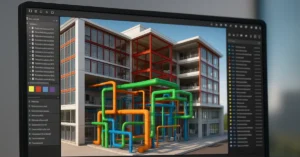Exploring Brutalist Buildings in Birmingham
Birmingham, known for its industrial heritage and dynamic urban development, has a unique architectural landscape. Among its most controversial yet striking styles is Brutalism, characterized by raw concrete facades, geometric forms, and imposing designs. While often debated for their stark aesthetics, these buildings reflect the city’s mid-century vision for modernity and efficiency. In this guide, we explore Birmingham’s most iconic Brutalist buildings and their significance.
What is Brutalist Architecture?
Brutalism emerged in the mid-20th century as a functional and cost-effective architectural style. The term derives from the French phrase “béton brut,” meaning raw concrete, which defines the material and aesthetic of the movement. Birmingham, like many post-war cities, adopted Brutalist designs for its public, educational, and civic structures, creating a cityscape of bold and uncompromising buildings.
Birmingham’s Must-See Brutalist Buildings
1. Birmingham Central Library (Demolished)
Location: Paradise Circus, Birmingham, UK
Architect: John Madin
Year: 1974
Once a landmark of Birmingham’s Brutalist era, the Birmingham Central Library was an architectural marvel designed by John Madin. Its inverted ziggurat structure made it one of the UK’s most recognizable Brutalist buildings. However, despite efforts to preserve it, the library was demolished in 2016, sparking debates about the loss of Brutalist heritage.
2. New Street Signal Box
Location: Navigation Street, Birmingham, UK
Architect: Bicknell & Hamilton
Year: 1965
Standing as a testament to Brutalist functionality, the New Street Signal Box is a striking example of concrete-heavy design. Its robust and geometric facade makes it one of the most distinctive railway-related buildings in the UK, symbolizing Birmingham’s post-war railway modernization.
3. Alpha Tower
Location: Suffolk Street Queensway, Birmingham, UK
Architect: Richard Seifert & Partners
Year: 1973
Alpha Tower, originally designed as the headquarters for ATV, is one of Birmingham’s most iconic skyscrapers. With its sleek yet imposing Brutalist design, the tower remains a significant part of the city’s skyline, demonstrating how Brutalism can integrate into commercial architecture.
4. Joseph Chamberlain Memorial Clock Tower (Old Joe)
Location: University of Birmingham, Birmingham, UK
Architect: Aston Webb & Ingress Bell
Year: 1908
While not a pure Brutalist structure, Old Joe features elements that align with the movement’s monumental aesthetics. This clock tower, part of the University of Birmingham, showcases a commanding presence that resonates with Brutalist principles of bold, functional design.
5. The Rotunda
Location: New Street, Birmingham, UK
Architect: James A. Roberts
Year: 1965
The Rotunda, an iconic cylindrical tower, is a classic example of modernist Brutalism. Originally an office building, it has since been repurposed into apartments, maintaining its architectural significance in Birmingham’s evolving skyline.
The Influence of Brutalism on Birmingham’s Urban Landscape
Brutalism played a crucial role in Birmingham’s post-war rebuilding efforts, symbolizing progress and resilience. Many of these structures were designed for public utility, showcasing the era’s preference for practicality over ornamentation. However, as architectural trends shifted, several Brutalist buildings faced demolition or adaptation to modern uses.
Preservation vs. Demolition: The Debate Over Brutalism
Brutalist buildings often spark polarized opinions. While some view them as cold and unappealing, others appreciate their bold architectural statement. In Birmingham, preservation efforts have been mixed, with some structures like the Alpha Tower being adapted for contemporary use, while others, like the Central Library, were demolished despite protests from conservationists.
Why You Should Appreciate Brutalism in Birmingham
Brutalist architecture in Birmingham represents an era of bold experimentation and urban transformation. While its aesthetic may not be universally loved, its historical and architectural significance is undeniable. Exploring Birmingham’s Brutalist buildings offers insight into the city’s journey through modernization and architectural evolution.
For architecture enthusiasts, a tour of Birmingham’s Brutalist landmarks provides a deeper appreciation of mid-century design and urban planning. Whether preserved or lost, these structures tell a compelling story of a city that embraced modernism with confidence and ambition.
Final Thoughts
Brutalist buildings in Birmingham may divide opinions, but their impact on the city’s architectural landscape remains profound. Whether admired for their innovation or critiqued for their stark aesthetics, these structures stand as lasting symbols of an era that redefined urban spaces. Take a closer look at Birmingham’s Brutalist landmarks, and you might just see them in a new light.
If you’re interested in learning more about architecture firms in Europe, check out this comprehensive list of the top 50 firms compiled by Archgyan. From innovative startups to long-established industry leaders, this list has it all. Take a look and discover some of the most inspiring and influential architecture firms in Europe today.
If you’re interested in architecture and want to learn more about this amazing field, subscribe to our podcast on youtube
For more SketchUp tutorials, head to https://www.sketchupguru.com










